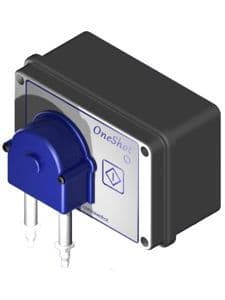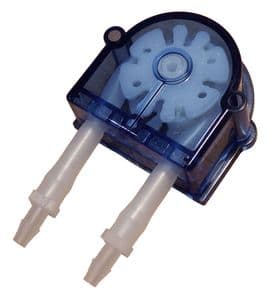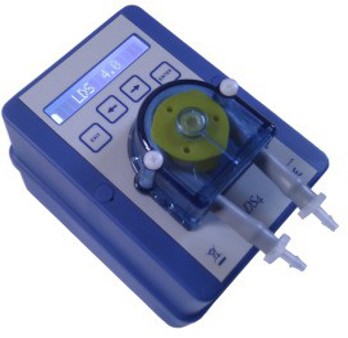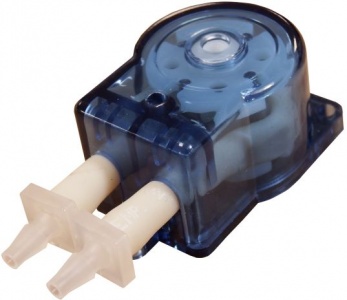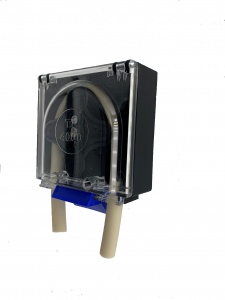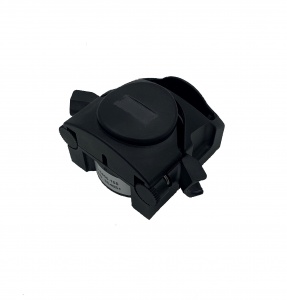Peristaltic pumps: Introduction
.png)
Here at the Williamson Manufacturing Company Ltd we have nearly two decades of experience in the design and manufacture of peristaltic pumps and know that the selection of the correct peristaltic pump and peristaltic tubing for the right application is critical to the success or failure of a particular pump.
There are many benefits to using peristaltic pumps in a wide range of applications, but before covering the benefits we should outline precisely WHAT IS A PERISTALTIC PUMP?
The term "peristalsis" is originally a medical term to describe the way food is squeezed through the digestive system. A typical medical definition describes " a series of normal coordinated, rhythmic muscle contractions that occurs automatically to move food through the digestive tract, urine from the kidneys through the ureters into the bladder, and bile from the gallbladder into the duodenum. Peristalsis is a normal function of the body to move fluid from one place to another."
Peristaltic pumps replicate this process and use a flexible tubing that is compressed by rollers which are rotated by a drive mechanism - normally an electric motor, and the faster the motor turns, the more liquid is moved and the more flow you get per hour. The principle is very similar to getting toothpaste out of a tube. As the rollers turn they squeeze successive 'pockets' of fluid through the peristaltic pump tubing resulting in a pulsed but continuous flow through the pump. So what are benefits of using a peristaltic pump in your fluid handling application?
DRY RUNNING - unlike many types of pump peristaltic pumps have a dry running capability with virtually no adverse effects even after prolonged periods of time. This means peristaltic pumps can be specified for many applications where the risk of dry run damage to other pump types could prove costly or lead to serious problems.
SELF PRIMING - many pumps will not self-prime and can only be used where flooded suction exists. This can greatly restrict their use in many applications. Peristaltic pumps however have extremely good self-priming capacity, even from dry, and many of the peristaltics in the Williamson Manufacturing range will easily self-prime to 5 metres plus even from dry.
DEBRIS / PARTICULATES - as peristaltic pumps have no valves or narrow restriction points, they lend themselves particularly to fluid handling applications where there is debris or particulates in the fluid. We supply many pumps for sampling equipment where there can be large amounts of grit, sand, and other solid particles - these pass through the pump without problems. Please note: occasionally if very high quantities of abrasive particles are passing through peristaltic pumps there can be increased wear on the internal surface of the tubing and reduced life as a consequence. However regular tube replacement will avoid potential problems.
REDUCED CONTAMINATION - One of the major benefits of peristaltic pumps is the fact that only the internal surface of the tubing comes into contact with the fluid being handled. No valves or dirt traps inside the pump means that the tube can be quickly flushed out to remove traces of potential contaminants. For applications where contamination is a particular concern we supply many pumps where the entire tubing assembly can be replaced in seconds to totally eliminate risk. The beauty of peristaltic pumps is that no matter what the fluid is being handled, and how chemically aggressive it is, the appropriate tubing material can be specified to ensure pump function.
CHECK VALVE ACTION - Many traditional pump types require a check valve or other mechanism to be fitted to ensure that where back pressure exists (pumping against a vertical head for example) backflow of fluid through the pump does not occur. The occlusion (compression) of the peristaltic pump tubing by multiple rollers within the pump head makes for an effective mechanism to resist back flow and in most backflow-critical applications an additional check valve is not normally required.
Peristaltic pump tubing has a finite life - tubing is a wearing part within the pump and is the component which is in direct contact with the (often chemically aggressive) fluid being handled by the pump. By following some simple guidelines when selecting tube, tube life can be optimised and the performance of the pump made as efficient as possible. There are a variety of other factors which all contribute to the durability of tubing in a peristaltic pump - friction between the pump body, tube, and rollers, the amount and type of lubrication, correct installation of the tube (to avoid kinks and twisting), ambient temperature and fluid temperature, particulates in the fluid, and fluid viscosity can all have a significant effect on tube life and pump efficiency. To discuss tubing selection in your own particular pumping systems please Contact Us.

